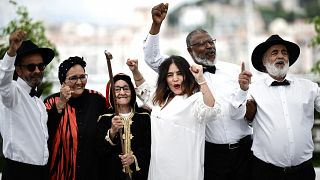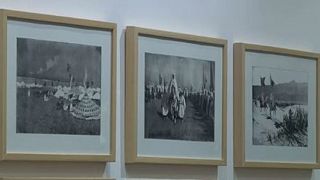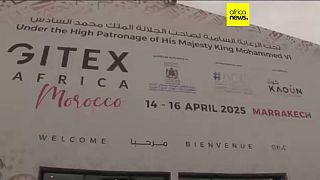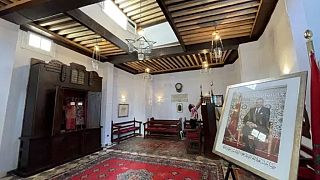Morocco
In the ancient Medina of Essaouira, in southwest Morocco, tourists and locals alike scour the city's souks, where all their senses are stimulated.
Amid the hustle and bustle of ongoing trade, colorful clothes and accessories cover the walls, Gnaoua culture is on full display.
From music to gastronomy or even calligraphy, the Amazigh and Gnawa culture endlessly inspires fashion designers.
In recent years, there has been a renewed interest in traditional Moroccan clothing. Moroccan designers are creating modern interpretations of traditional garments, and the country’s fashion industry is thriving.
"All clothes and accessories are inspired by the Amazigh and Gnaoua heritage, like blue, green and orange make a good mix. We also sell here various accessories like bags and clothes. All crafts inspired by the Gnaoua and Amazigh cultures are sold here," explains Najat Ben Yahya, a saleswoman.
The Amazigh and Gnawa heritage have also been a source of inspiration for western designers, such as Yves saint Laurent, who claimed his work was heavily influenced by Amazigh culture.
According to Najat Ben Yahya, the beauty of the culture lies within its rapport to nature.
"Because it's a small town by the sea, where it's quiet, people come here to get away from the stress and overcrowded [cities]. People connect with nature, the land and the sea. There's a certain spirituality and the clothes are inspired by all of that."
Gnawa culture is a centuries-old Moroccan practice rooted in African spirituality and rituals which is celebrated during the annual music festival, recognized in 2019 by UNESCO as an intangible cultural heritage of humanity.













Go to video
Exhibition in Morocco explores a world of color
Go to video
The EU moves to fast-track asylum claims by migrants from 7 countries to speed deportation
00:50
Spain: human trafficking ring smuggling moroccans into europe dismantled
Go to video
Paris hosts the 4th edition of African Cinema Days featuring Côte d'Ivoire
Go to video
France and Algeria resume diplomatic talks aimed at mending rift
Go to video
Pamela's iconic 'Baywatch' swimming costume makes a splash at new exhibit